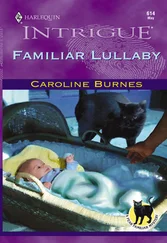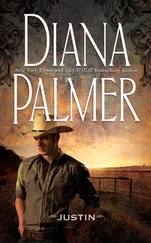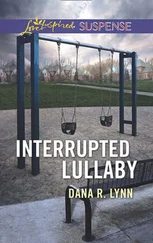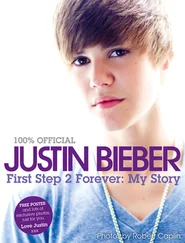“I’m not sure who that is.”
“Of course you do, Alistair, his kid.”
Ogata was right. Peter knew something about Alistair. There had been a grainy video of Cross’s son being escorted off a flight at LAX. Maybe Alistair had thrown his shoes at someone or he’d refused to come out of the bathroom — Peter wasn’t sure if he was remembering one incident or two. Alistair had been one of the trailblazers who established public fuckup as a viable form of celebrity. But he wasn’t some kid anymore; he had to be close to Peter’s age.
Ogata exhaled. “We need to talk about your exposure.”
“Exposure?”
“If you witness a person hit by a car, then you’re obligated to give aid, but you went over there on your own. You agreed to see a patient outside of the medical facility where you’re employed. Whether you realize it or not, you opened that hospital of yours to a huge liability. Can you imagine the kinds of damages Jimmy’s people would seek if he keeled over? Do you have a copy of your contract?”
“There wasn’t any contract. He knows my mother.”
“I’m talking about your employment contract. The hospital sure as hell had you sign some paper. Typically they stipulate that you can’t practice medicine outside of their facilities, not without informing a supervisor. Have they called you yet, probably someone senior, someone who you didn’t think knew your name?”
“They don’t know I saw him.”
“They know. I spoke with the director this morning.”
“You spoke with the hospital’s director?”
“If you want to get to the bottom of something, you have to start at the top. I’ve got her name here somewhere. You absolutely had to call someone before you went over.”
“You spoke with Dr. Larsen.”
“We kept it short because of the TV people.”
How could the hospital expect Peter to know the protocol for something unprecedented? Was he, as Lucy had intimated, a person who succeeded despite a crippling inability to read the writing on the wall?
Ogata was going on about attorneys. “These people,” he said, “are the stones that grind the wheat.”
Peter rolled his window down. How could the air feel so humid and so cold? The wind was an eel on the bottom of a pond. “Is the hospital mad at me?”
“A hospital cannot be mad,” Ogata said, unhelpfully. “And Jim seems to think you’re pretty special.”
“I did him a favor.” Peter closed his car window. “He could have just said thanks and left it at that.”
“You want to lecture him on manners? He’s Jimmy Cross.”
It was all true. Ogata probably knew his MCAT scores, his shoe size, and what he’d eat for lunch.
Gene had built a little deck at the top of the stairs. A pair of vintage aluminum chairs bookended a glass-topped café table. A maple hung over the place, lending it a tree-house feel.
Inside I find a cramped kitchenette with a Formica table; beneath a skylight, a plush armchair sits on a knotted rug. In the corner, a farm quilt drapes over an iron-framed bed. The place makes me feel docile in my bones.
After filling a water glass, I go outside to sit. A breeze twists leaves on their stems. Lawn mowers drone in the distance and for a few minutes I entertain the idea of checking the garage to see if Gene has a mower — I haven’t done yard work in so long that I almost forgot I despise it.
In my previous life, Patricia and I shared a two-story colonial in a similar neighborhood. At night she and I had the conversations indigenous to those sorts of places. We talked about our aging parents, our disappointing friends, and whether Gabby deserved a sibling — she was a happy enough kid, but she used to follow us around the house as though we were her source of oxygen. We ended up getting her a yappy dog from the pound, a little dog with a curly red coat and a tail that appeared blurry in every photograph. Cherokee, that’s what we named him.
Every chance he got, the dog would bolt outside to chase his sworn enemies: squirrels, kids on skateboards, and cars. We were perpetually bracing for some swift and final accident, but it never came.
And the dog loved eating. Despite the vet’s admonishing, we fed him snacks at the table. By the time I went on the road, Cherokee was slowing down, though he was only three or so.
I jump when I hear a jet roar overhead.
Gene’s right: I’m still the Restless One.
Peter was a regional doctor at a regional hospital. He didn’t attend to internationally recognized recording stars and he didn’t consult with medical personalities who had their own cable shows.
He’d grown up in North Carolina, in a tourist-trap town just outside a National Forest. Judith owned a store called Natural Wonders, where she sold nugget gold, raw emeralds, and geodes. The store sat wedged between a seasonal ice cream parlor and a damp nightmare called Snake World. A Pentecostal church faced them across the street.
He and Judith lived in an apartment above the store. At night, after finishing his homework, Peter would sit in front of the TV and split geodes that they bought in bulk from an outfit in Chihuahua.
Where was his father?
Judith called him the Scientist. She said he worked on magnets in New Mexico. The way she said it made Peter suspicious of magnets, of New Mexico, of the whole desert Southwest. He pictured scorpions and rattlesnakes, though the Scientist probably worked in a lab. His given name was Lawrence Brand.
IN ELEMENTARY SCHOOL, Peter played little league. He liked the compression of the stirrup socks and those warm summer nights when the spotlights grew furry with insects. At the plate, he swung at everything; when he connected, the sound of the ball coming off the bat almost stopped his heart. Sometimes, in his excitement, he’d slide into first or else he’d leg out a blooper only to meet a teammate camped out at second. He was uncoachable. He preferred soccer, because at halftime the whole team sat together to eat orange sections.
In middle school Peter caught someone’s attention with his score on a standardized test. He was invited to spend a week at a community college, dissecting fetal pigs and learning the math that saved the lives of the Apollo 13 astronauts.
In high school, Peter and a kid named Anatoly Tcherepnin had the privilege of eating lunch with the AP Math teacher.
Mrs. Bertini had been accepted into the aeronautics program at Cal Tech, but she hadn’t enrolled because her husband didn’t want her turning into an egghead or hanging out with astronauts. Peter would have preferred to eat in the cafeteria, but it didn’t seem fair to leave Mrs. B. alone with the other boy. If you gave him a four-digit number, Anatoly knew, to the second decimal place, the number’s square and cube roots. He’d also memorized the armor class and hit points of every creature in the Dungeons and Dragons Monster Manual . Staring at the pink creases in Anatoly’s neck, Peter wondered if the boy’s head weighed more for the things it contained.
Sometimes Mrs. B. would give the boys brainteasers from a pulpy workbook, but she preferred to talk about personal stuff: where did Peter go to church; what had Anatoly’s parents done in Russia (when the boy appeared to hesitate, she said, “Starve, I suppose”); if they had girlfriends; if Peter’s mother had a boyfriend; what they liked to watch on TV — TV gave Anatoly migraines. The questions never felt invasive to Peter because Mrs. B. always managed to turn the answer back to herself. One time she asked Anatoly if there were lots of orphaned children in Russia, but before he could answer she told him there were, that she’d been dreaming about them. When she told her dream to Mr. B., he’d cried, despite the fact that Italian men don’t cry, as a rule.
Читать дальше












